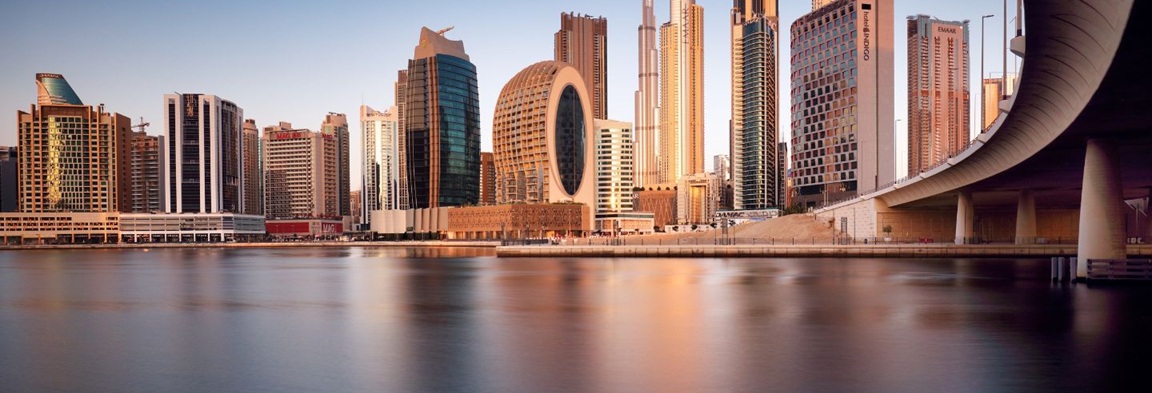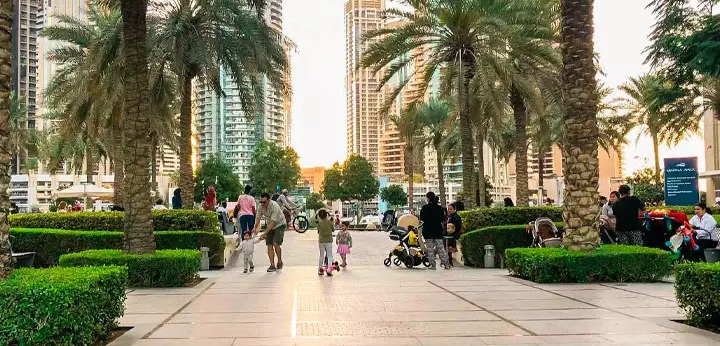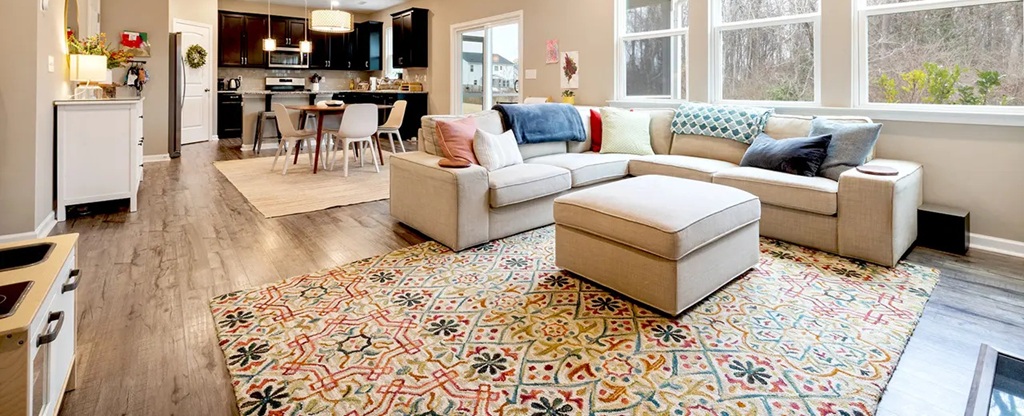Green Real Estate: The Growing Demand for Eco-Friendly Properties in Dubai
Monday, 12 May 2025
Green real estate refers to properties that are designed, constructed, and operated with a focus on sustainability and minimizing their environmental impact. These properties incorporate eco-friendly building materials, energy-efficient systems, water-saving technologies, and other sustainable practices that reduce the building’s carbon footprint. The goal of green real estate is to create spaces that are both environmentally responsible and resource-efficient while offering long-term cost savings and healthier living or working conditions.
Dubai’s property market has long been synonymous with luxury, innovation, and rapid growth. But in 2025, another factor is increasingly shaping buying decisions: sustainability. With the UAE aiming for net-zero carbon emissions by 2050, green buildings are moving from niche to mainstream, fundamentally redefining how and where people invest in Dubai’s real estate.
For savvy investors, this transformation offers more than just environmental appeal—it presents a strategic opportunity to future-proof assets, meet growing tenant expectations, and align with a market headed toward smarter, cleaner development.
Table of Contents
- Why Green Real Estate Is Gaining Momentum in Dubai
- Government Policies Powering Sustainable Growth
- What Makes a Property “Green” in Dubai?
- Why Investors Should Care About Green Buildings
- Leading Green Communities in Dubai
- How the Government Supports Eco-Friendly Investment
- Getting Started with Sustainable Property Investment
- Frequently asked questions
Why Green Real Estate Is Gaining Momentum in Dubai
Dubai has undergone rapid urban expansion over the past few decades, much of which was resource-intensive. But rising awareness of climate issues and a growing eco-conscious population are pushing the emirate to prioritize efficiency, lower emissions, and long-term environmental responsibility.
Today, both buyers and tenants are demanding properties that not only reflect modern aesthetics but also contribute to healthier lifestyles and sustainable living. This shift is being reinforced by strong governmental support and innovative development policies.
Government Policies Powering Sustainable Growth
Dubai’s green real estate surge is not happening by chance. It’s the result of aggressive sustainability frameworks and forward-looking legislation:
- Dubai Green Building Regulations enforce environmental standards on new developments.
- The Estidama Pearl Rating System (originally introduced in Abu Dhabi) influences how buildings are evaluated for sustainability.
- The Dubai Clean Energy Strategy 2050 envisions the city sourcing 75% of its energy from clean sources by mid-century.
- Smart Dubai initiatives focus on digital and environmental transformation across infrastructure and services.
As these regulations tighten and become the new standard, developers are increasingly opting for green certifications to stay competitive.
What Makes a Property “Green” in Dubai?
Eco-friendly buildings in Dubai are being designed with efficiency, durability, and well-being in mind. Key features of sustainable real estate include:
- High-performance HVAC and lighting systems
- Smart water-saving plumbing fixtures
- Insulated, energy-efficient facades
- Use of recyclable and low-impact materials
- Solar panels and renewable energy systems
- Rooftop gardens and vertical greenery
These design choices don’t just appeal to environmentally minded buyers—they also lead to lower operational costs, better air quality, and stronger tenant retention.
Why Investors Should Care About Green Buildings
Green real estate is no longer just good for the planet—it’s a smart investment strategy. Dubai property experts agree that eco-conscious properties tend to:
- Offer reduced utility and maintenance costs
- Achieve higher occupancy rates
- Maintain superior resale values
- Appeal to a growing market of eco-aware residents and global businesses
By investing in sustainable developments now, investors are future-proofing their portfolios in line with evolving regulatory demands and tenant expectations.
Leading Green Communities in Dubai
Certain areas in Dubai are emerging as hotspots for sustainable living, offering an ideal blend of eco-conscious design and lifestyle convenience:
- The Sustainable City: A trailblazer in zero-emissions living with solar-powered homes and car-free zones
- Dubai Hills Estate: Combines green spaces, modern infrastructure, and energy-efficient homes
- Downtown Dubai and Business Bay: High-rise developments with smart systems and environmentally friendly construction
- Tilal Al Ghaf: A new master-planned community integrating sustainable materials and green building techniques
These communities are setting the tone for Dubai’s eco-luxury segment, drawing both local buyers and foreign investors.
How the Government Supports Eco-Friendly Investment
The UAE is encouraging green property investment with several incentives:
- Green home loans with attractive interest rates
- Discounted registration and utility fees for certified buildings
- Fast-tracked approvals for sustainable projects
- Perks like free parking for electric vehicles and lower DEWA bills
These benefits not only make green homes more accessible but also improve ROI potential for investors entering this growing sector.
Getting Started with Sustainable Property Investment
Thinking about going green with your next investment? Here’s how to begin:
- Check for green certifications like LEED, BREEAM, or Estidama
- Review long-term cost savings on utilities and maintenance
- Consider off-plan projects that incorporate sustainability from the ground up
- Work with eco-savvy agents or consultants who specialize in sustainable real estate in Dubai
Whether you’re a seasoned buyer or a first-time investor, aligning with Dubai’s green real estate movement is a smart, future-focused strategy.
Dubai’s push toward sustainability is more than a trend—it’s a fundamental shift in how real estate is designed, built, and lived in. From higher asset values to healthier lifestyles and government-backed incentives, eco-friendly properties offer unmatched advantages.
Frequently Asked Questions (FAQs)
What is green real estate?
Green real estate refers to properties designed and built using environmentally sustainable practices. These buildings focus on reducing energy consumption, conserving water, using sustainable materials, and minimizing their environmental impact.
Why is eco-friendly property important in Dubai?
With rising environmental awareness and the UAE’s push for carbon neutrality by 2050, sustainable real estate supports reduced carbon footprints, lower utility costs, and healthier living environments. Dubai’s green vision is reshaping how developments are planned and constructed.
Are green buildings more expensive to buy?
While initial costs can be slightly higher due to eco-friendly materials and systems, green properties offer long-term savings through lower utility bills, maintenance costs, and potential tax incentives — making them a smart investment.
What features make a building eco-friendly in Dubai?
Typical features include solar panels, energy-efficient HVAC systems, water-saving fixtures, sustainable insulation, green rooftops, and smart home technologies that optimize energy use.
Does the Dubai government support green real estate?
Yes. Dubai has launched multiple initiatives like the Dubai Clean Energy Strategy 2050, Green Building Regulations, and Estidama Pearl Rating System to promote sustainable development and encourage developers to build greener projects.
Are there specific areas in Dubai known for green real estate?
Yes. Communities like Dubai Sustainable City, Dubai Hills Estate, and parts of Business Bay and Downtown Dubai are leading the charge in eco-friendly living with smart, sustainable infrastructure.
How can I invest in green real estate in Dubai?
You can explore off-plan eco-projects, check for sustainability certifications, and work with a qualified property investment expert who understands the local green real estate landscape and long-term ROI potential.





